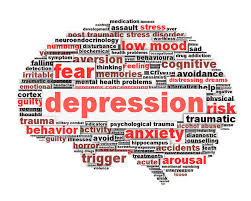Depression is more than “the blues.” The common but serious mood disorder, also known as major or clinical depression, causes severe symptoms that deeply influence how you feel, think, and function. So if you’re seeking depression treatment APN, our depression psychiatrists are here to help.

There are numerous types of depression differentiated by factors such as how long or severely you experience symptoms or when they occur. These types include:
or persistent depressive disorder: Lasts for at least 2 years
Derives from and follows childbirth
Depression plus a form of psychosis such as hallucinations or delusions
Coincides with a particular season, most commonly winter

Bipolar disorder isn’t technically a form of depression but it can cause episodes called bipolar depression in which you experience severely low moods that meet the depression criteria. Bipolar disorder may also cause extreme, euphoric highs known as mania or more moderate highs called hypomania. Our depression psychiatrists near you can also provide specialized care for individuals with bipolar depression.
The latest research findings suggest that a combination of biological, environmental and psychological factors cause depression. Depression can also co-occur with other illnesses such as cancer, diabetes, eating disorders and heart disease. Certain medications, family history of depression, trauma, stress and major life changes can also be contributing factors. Our depression treatment APN (advanced practice nurses) offer holistic approaches considering all potential contributors to your condition.
All types and severities of depression can be treated. Commonly effective options involve antidepressants, counseling for depression, or both. Contemporary Care provides these treatments and Transcranial Magnetic Stimulation (TMS), which uses a magnetic field to stimulate brain areas that control moods and may be under-active in depressed individuals. If an underlying cause is at play, such as an eating disorder, treatment for that condition will also likely improve your depressive symptoms.
Our depression treatment center offers a full spectrum of therapies, ensuring that each patient receives a personalized and effective treatment plan.
Empower your healing journey today. Your path to renewed hope and mental well-being starts here. Our depression treatment APN and psychiatrists are here to support your mental health journey.